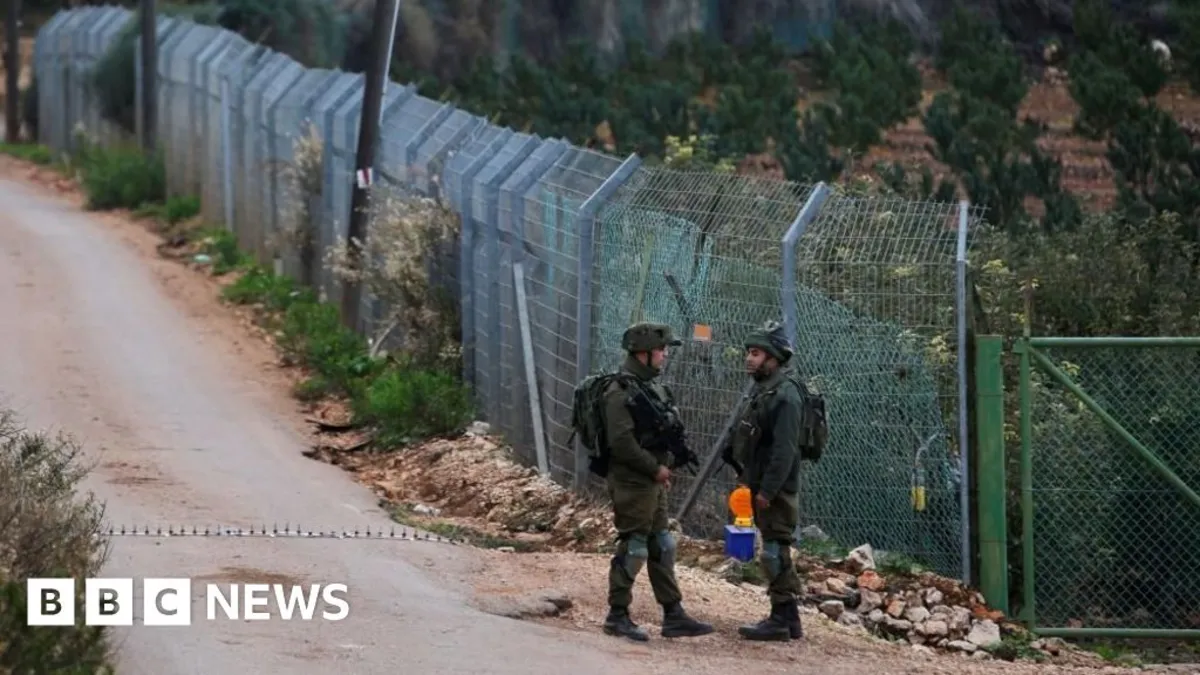
In a significant escalation of tensions, Israel has issued a stern warning, pledging to respond severely after rockets were fired from Lebanon for the first time since the bilateral ceasefire agreement took effect in November. Sirens blared in the northern Israeli town of Metula on Saturday morning, prompting immediate action from the Israel Defense Forces (IDF), who reported the interception of three rockets. Fortunately, no injuries were reported in this incident.
As the situation unfolds, no group has claimed responsibility for the rocket fire. In response to the escalating conflict, Lebanon's Prime Minister has urged the military to take proactive measures to prevent the country from being dragged into another war. The IDF chief, Eyal Zamir, emphasized that the Lebanese state bears the responsibility for maintaining the ceasefire deal, which aimed to end 14 months of intense fighting with Hezbollah, the Iranian-backed armed group in Lebanon.
Local reports from Lebanon indicate that artillery fire has been directed at several southern locations, although Israel has yet to confirm these reports. The ceasefire remains precarious, with Israel conducting nearly daily air strikes on what it describes as Hezbollah targets. The Israeli military has signaled that these attacks will persist to prevent Hezbollah from rearming.
Additionally, the Israeli military continues to occupy five positions in southern Lebanon. This occupation is viewed by the Lebanese government as a violation of the country’s sovereignty and a breach of the ceasefire agreement, which called for the withdrawal of Israeli troops. Israel argues that the Lebanese military has not fully deployed to those areas, claiming that its presence is necessary to ensure the security of its border communities.
The rocket attack on Saturday is expected to increase pressure on the Lebanese government and may be used by Israel as evidence that the Lebanese army lacks full control over border regions. Despite the ongoing Israeli air strikes, Hezbollah has refrained from responding, facing internal challenges related to providing financial support to communities affected by the conflict and pressure from its opponents to disarm.
Lebanon's President, Joseph Aoun, who assumed office in January, has publicly stated that only the state should possess arms, a comment widely interpreted as a reference to Hezbollah's substantial arsenal. Furthermore, Lebanon’s international partners have indicated that their support will hinge on the government’s ability to curtail Hezbollah’s influence.
Hezbollah initiated its military campaign shortly after the Hamas attacks on southern Israel on October 7, 2023, claiming to act in solidarity with Palestinians in the Gaza Strip. The longstanding conflict has since escalated, leading to a significant Israeli air campaign across Lebanon, the targeted assassination of senior Hezbollah leaders, and a ground invasion of southern Lebanon. The offensive has resulted in approximately 4,000 fatalities in Lebanon, including many civilians, and has displaced over 1.2 million residents.
Israel's stated objective in its ongoing war against Hezbollah is to facilitate the return of around 60,000 displaced residents from northern communities that have suffered due to Hezbollah's attacks. The conflict highlights the complex and fragile nature of the ceasefire and the broader implications for stability in the region.